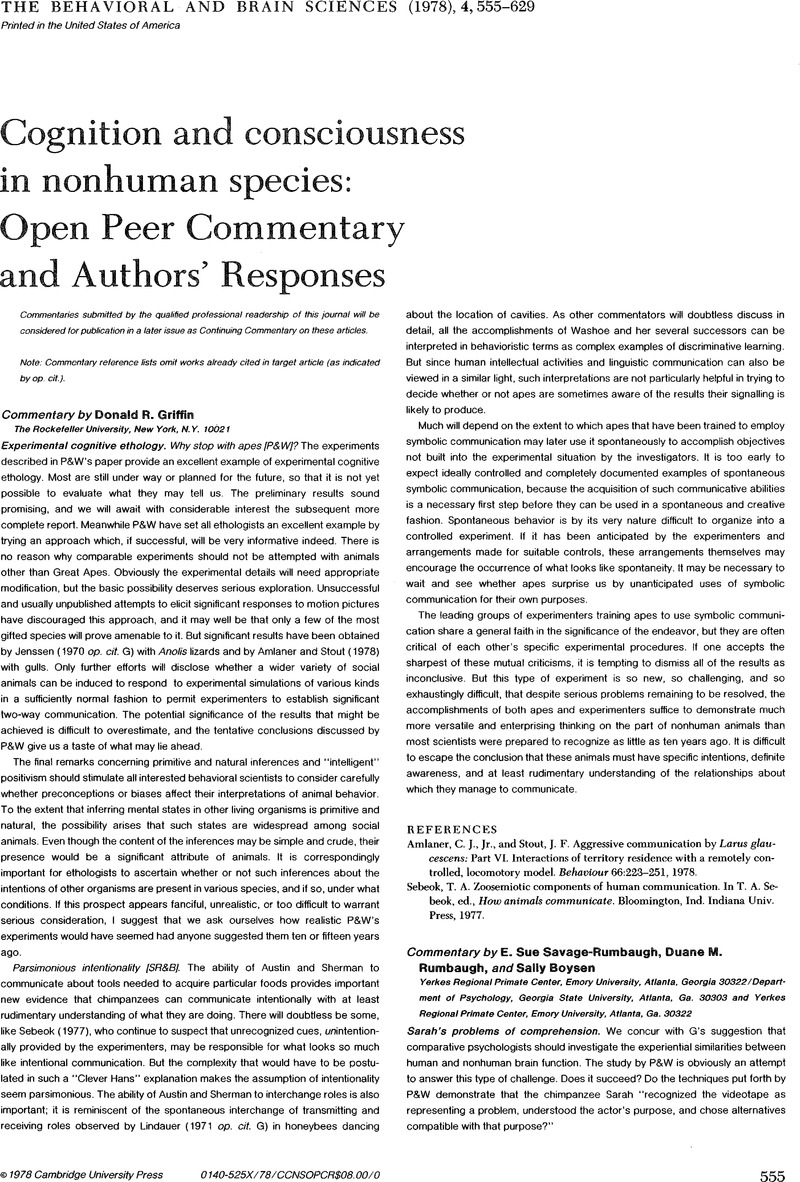Crossref Citations
This article has been cited by the following publications. This list is generated based on data provided by Crossref.
Maxim, Peter E.
1982.
Contexts and messages in macaque social communication.
American Journal of Primatology,
Vol. 2,
Issue. 1,
p.
63.



